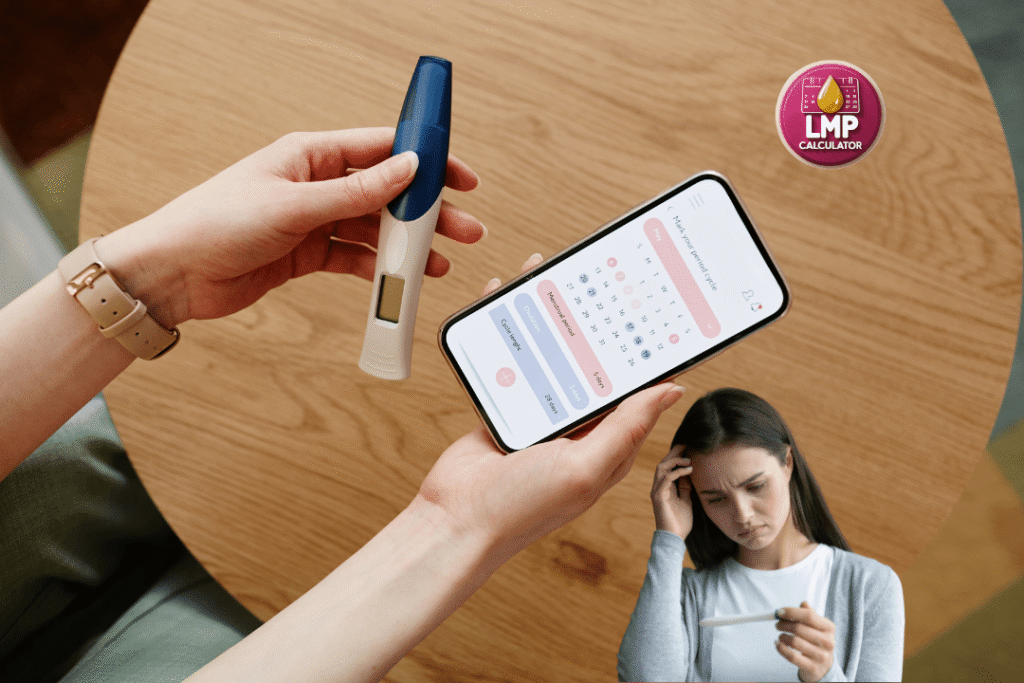Missing your period can be both exciting and nerve-wracking. Whether you’re trying to conceive or just want to understand your body better, knowing how to count pregnancy weeks after a missed period is essential knowledge every woman should have.
What Does a Missed Period Actually Mean?
A missed period happens when your monthly cycle doesn’t arrive when expected. For most women with regular cycles, this occurs every 28-35 days. When your period is late by more than a few days, it could be the first sign of pregnancy.
However, missed periods aren’t always due to pregnancy. Stress, weight changes, hormones, or medical conditions can also cause delays.
How to Count Pregnancy Weeks After a Missed Period
The Standard Medical Method
Doctors count pregnancy from your Last Menstrual Period (LMP), not from conception. This might seem confusing, but there’s a good reason for it.
Here’s how it works:
- Week 1 of pregnancy starts on the first day of your last period
- You’re actually not pregnant during weeks 1 and 2
- Conception typically happens around week 3
- By the time you miss your period, you’re already about 4 weeks pregnant
Simple Calculation Steps
- Find your LMP date: Mark the first day of your last normal period
- Count the weeks: From that date to today
- Add the missed days: Include how long your period is overdue
Example:
- Last period started: January 1st
- Today’s date: February 5th
- That’s about 5 weeks pregnant
When Should You Take a Pregnancy Test?
The best time to take a pregnancy test is one week after your missed period. Here’s why:
- Most tests can detect pregnancy hormones (hCG) around this time
- Testing too early might give false negatives
- Morning urine gives the most accurate results
Types of Pregnancy Tests
Home Pregnancy Tests:
- Easy to use and private
- 99% accurate when used correctly
- Available at any pharmacy
Blood Tests:
- More sensitive than urine tests
- Can detect pregnancy earlier
- Must be done at a doctor’s office

Early Pregnancy Signs Beyond Missed Period
While a missed period is the most obvious sign, other early symptoms include:
- Tender or swollen breasts
- Nausea or morning sickness
- Increased urination
- Fatigue and tiredness
- Food aversions or cravings
- Light spotting or cramping
Using Online Pregnancy Calculators
Modern pregnancy calculators make counting weeks much easier. These tools use your LMP date to:
- Calculate how many weeks pregnant you are
- Estimate your due date
- Track important pregnancy milestones
- Plan prenatal appointments
A reliable pregnancy calculator can save time and reduce confusion about dates.
Common Mistakes When Counting Pregnancy
Mistake 1: Counting from Conception
Many women think pregnancy starts when they conceive, but medical professionals count from your LMP.
Mistake 2: Irregular Cycle Confusion
If your cycles are irregular, standard calculations might not be accurate. You may need an ultrasound for precise dating.
Mistake 3: Forgetting Leap Years
When calculating across months, remember to account for different month lengths and leap years.
What If Your Periods Are Irregular?
Irregular periods make pregnancy counting more challenging. If your cycles vary by more than 7 days each month:
- Track your cycles for several months
- Note ovulation signs like temperature changes
- Consider ovulation predictor kits
- Consult your doctor for accurate dating
Important Milestones in Early Pregnancy
Week 4-5: Missed Period
- Pregnancy hormones start rising
- Home tests become reliable
- Time to start prenatal vitamins
Week 6-8: First Prenatal Visit
- Doctor confirms pregnancy
- Initial health screenings
- Discuss prenatal care plan
Week 8-12: First Trimester
- Major organ development
- Morning sickness peaks
- First ultrasound usually scheduled
When to See a Doctor
Contact your healthcare provider if you experience:
- Heavy bleeding with missed period
- Severe abdominal pain
- Persistent nausea and vomiting
- Signs of ectopic pregnancy
- Any concerning symptoms
Tips for Accurate Pregnancy Tracking
- Keep a period diary: Track your cycles regularly
- Note your LMP: Write down the exact date
- Use reliable tools: Choose trusted pregnancy calculators
- Stay consistent: Use the same method throughout pregnancy
- Confirm with professionals: Let your doctor verify dates
Understanding Pregnancy Trimesters
Once you know how many weeks pregnant you are:
First Trimester: Weeks 1-12
- Highest risk period
- Major organ development
- Most morning sickness occurs
Second Trimester: Weeks 13-26
- Often called the “golden period”
- Energy levels improve
- Baby’s movements felt
Third Trimester: Weeks 27-40
- Rapid baby growth
- Preparation for birth
- More frequent doctor visits
The Importance of Early Prenatal Care
Knowing your pregnancy timeline helps you:
- Start prenatal vitamins early
- Schedule timely medical appointments
- Avoid harmful substances
- Plan for lifestyle changes
- Prepare emotionally and financially
Conclusion
Counting pregnancy after a missed period doesn’t have to be complicated. Remember that medical professionals count from your last menstrual period, not from conception. A missed period typically means you’re about 4 weeks pregnant.
Use reliable tools like pregnancy calculators to track your progress, but always confirm with your healthcare provider. Early prenatal care is crucial for both you and your baby’s health.
Whether this is your first pregnancy or you’re an experienced mom, understanding how to count pregnancy weeks empowers you to make informed decisions about your health and your baby’s development.
About the Author
Dr. Anuja Dokras, MBBS, DNB (Obs & Gynae) is an Oxford-trained specialist in Infertility & Women’s Health and the Founder of LMP Calculator. With extensive experience in women’s reproductive health, Dr. Dokras is dedicated to providing accurate, accessible information to help women understand their bodies and make informed health decisions. Know about the author and doctor
Medical Disclaimer: This article is for informational purposes only and should not replace professional medical advice. Always consult with your healthcare provider for personalized medical guidance.
